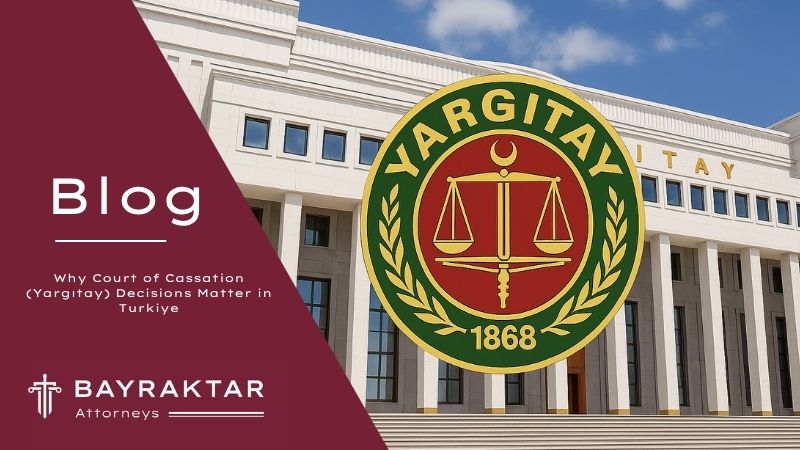
Establishing International Schools in Turkey: Legal Aspects and Guidelines for Foreign Investors
Introduction: In Turkey, a diverse range of foreign nationals choose to reside, both temporarily and permanently, alongside their Turkish counterparts. For those foreign citizens opting for permanent residency, a paramount consideration is ensuring their children’s education continues seamlessly.
This involves enrolling them in internationally accredited schools in accordance with their home countries’ education regulations, as sanctioned by the Ministry of National Education.
Can Foreign Nationals Open Schools in Turkey?
While the ability for foreigners to establish schools is subject to legal regulations in every country, in Turkey, it is governed by Law No. 5580.
For Foreigners who are not Turkish Citizens:
To establish an institution or school in Turkey, they must obtain permission from the Council of Ministers. If the individual is a Turkish citizen, Council of Ministers approval is not required.
Where to Apply for Establishment Permission?
Once a foreign national has obtained Council of Ministers approval, they must have leased or acquired a location for the school’s operations, and the facility should meet the standards outlined in the Private Education Institutions Law. The application process for establishing a Private Education Institution can then be initiated.
Ministry of National Education Consulting Services:
When establishing international schools, foreign investors need to be well-versed in the establishment processes of international schools in Turkey. Thus, having an experienced and knowledgeable consultancy team is essential.
After deciding to establish an international school, foreign investors should begin their research for suitable investment locations and collaborate with a specialized consultancy firm well-versed in foreign school licensing procedures. Conducting a professional land evaluation by experts is crucial, followed by the preparation of the application dossier.
Evaluating the expertise of your consultancy firm beforehand is pivotal to making informed decisions about land suitability and the meticulous preparation of application documents. Collaborating with a consultancy firm proficient in Turkish foreign school regulations is critical to expedite procedures related to technical aspects such as fire safety permits, health board approvals, lightning rod certifications, and elevator permits.
Arabic Schools in Turkey:
While numerous Arab schools have been established in Turkey recently, a majority of them are concentrated in Ankara and Istanbul. Our firm has pioneered the opening of many Arab schools, managing the entire process from inception to completion.
Each foreign school must adhere to the education regulations of the country they are operating in. Furthermore, investors looking to open schools must obtain permission from their home country’s education ministry.
Determining School Capacities for Foreign Schools:
During the establishment phase of international schools, capacity decisions can be made. If foreign investors already possess a school operating license, they can develop the institution to meet the standards stipulated in the Private Education Institution Regulations, thereby expanding its capacity. Capacity expansion progresses in tandem with physical and technical requirements.
The school’s quota and classroom numbers must be determined during the establishment phase while considering the conditions stated in Law No. 5580 dated 08/02/2007 for opening international schools. The appointment of the school principal and equivalence verification for teachers must also adhere to these regulations. Ensuring the equivalence of international schools in all aspects is pivotal to accrediting the education provided to these schools’ graduates in their home countries.
Private Education Institution Licensing and Inspection Process:
Experts involved in private education institution licensing and inspections possess the necessary knowledge and experience in their respective fields. Hence, preparation for these inspections necessitates similar expertise.
The inspection process typically spans 2 to 4 days. Once experts complete their reports, they submit their recommendations to the authorized coordinators. If all documentation is in order, the institution becomes eligible for licensing.
Foreign Investment Consultancy:
Foreign investment consultancy involves guiding foreign investors through the process of making stable and progressive investments while adhering to the appropriate rights and regulations within Turkey’s borders.
Can Foreigners Make Direct Investments?
Foreign nationals can indeed make direct investments. However, the key lies in not just the ability to invest directly but also in ensuring these investments are well-guided and strategically managed.
At Bayraktar Attorneys, we specialize in providing comprehensive legal assistance to foreign investors interested in opening international schools in Turkey. Our experienced team can navigate the intricacies of the application process, compliance with regulations, and the licensing procedure.
With our expertise in Turkish education law and regulations, we ensure a seamless and efficient process for establishing your international school. If you’re considering venturing into the realm of international education in Turkey, don’t hesitate to contact us.
Our dedicated team is here to assist you at every step, ensuring your investment is in full compliance with Turkish laws and regulations while maximizing its potential.



![["Interior of the European Court of Human Rights courtroom with the EU flag emblem on the floor, used in a blog graphic for Bayraktar Attorneys."]](https://admin.bayraktarattys.com/api/admin/images/images/projects/0e0ab302-a39a-4572-9d71-16a1d680334e_how-to-apply-european-court-human-rights-echr.jpg)
![["A maritime attorney at a shipping port reviewing legal documents, with a container ship and cranes in the background under clear daylight"]](https://admin.bayraktarattys.com/api/admin/images/images/projects/4945ac4a-835a-402c-918b-1dd4bfe33240_chartering-vessel-legal-services-turkiye.jpg)
![["A concerned woman in business attire stands on a balcony, observing a high-rise construction blocking the coastal view, symbolizing legal disputes over zoning and building rights in Türkiye."]](https://admin.bayraktarattys.com/api/admin/images/images/projects/559a8d76-60b3-4543-b03b-c95e6259813c_construction-blocking-view-lawsuit-turkiye.jpg)
![["A professional male attorney seated at a desk with legal symbols around him, drafting documents related to joint stock company legal obligations in Türkiye."]](https://admin.bayraktarattys.com/api/admin/images/images/projects/9e95305b-abbd-4d25-b8c6-b15e6f8da2cb_attorney-requirement-joint-stock-companies-turkiye.jpg)
